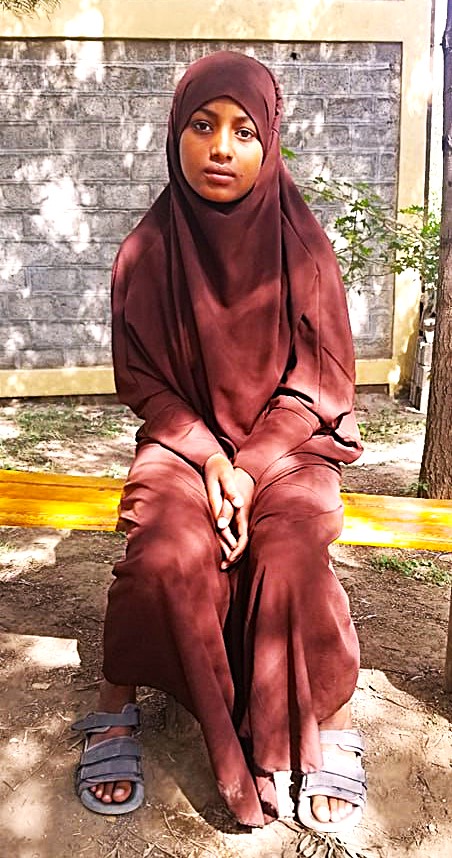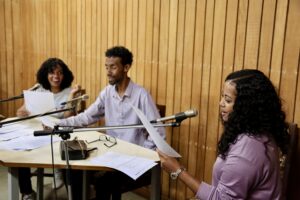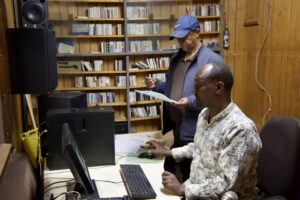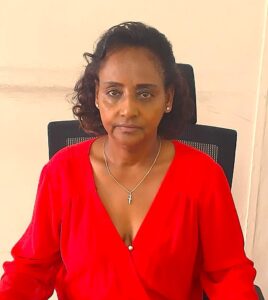Harnessing Media to Combat GBV and Eradicate Harmful Traditional Practices
In the Mareko Special Woreda of Ethiopia, a courageous 15-year-old student, Rosa Jemal, made a stand that would forever change her life and her community. Rosa was abducted and forced into a marriage by a man she barely knew. A typical day out at the market with a friend turned into a nightmare when she was lured into captivity. For a week, Rosa endured violence and abuse, trapped in a remote village, where her captor tried to force her to accept him as her husband.
 Despite the overwhelming fear, Rosa didn’t give up. She managed to escape after convincing her abductor to take her back to town. It was then, locked away and desperate for help, that Rosa reached out to a friend, passing a note through a small opening in the door. The friend delivered the note to her family, who swiftly alerted local authorities. With the help of community leaders and the police, Rosa was freed, and the perpetrator was sentenced to 12 years in prison.
Despite the overwhelming fear, Rosa didn’t give up. She managed to escape after convincing her abductor to take her back to town. It was then, locked away and desperate for help, that Rosa reached out to a friend, passing a note through a small opening in the door. The friend delivered the note to her family, who swiftly alerted local authorities. With the help of community leaders and the police, Rosa was freed, and the perpetrator was sentenced to 12 years in prison.
But this victory wasn’t just about justice for Rosa—it was about changing the narrative in a region where such practices were deeply rooted. Thanks to the awareness programs run by Population Media Center (PMC) with the support of UNFPA, including their radio dramas and community outreach, Rosa knew her rights and understood that what was happening to her was a crime.
The Role of Radio Programs in Changing Attitudes
Population Media Center (PMC’s) has been pivotal in shifting the mindset of entire communities, including those in Mareko, where abduction and forced marriage were normalized. Their approach is to combine compelling storytelling with educational content to combat Gender-Based Violence (GBV) and other harmful practices. Through their award-winning radio dramas like Nekakat (“Cracked”) or Yalaleke Guzo (“Unfinished Journey”) – PMC has reached over 2 million listeners across Ethiopia, even in the most remote and vulnerable communities.
“We use storytelling as a tool to educate, inspire, and empower,” says Tigiste Moges, a senior staff member at PMC. Their radio programs focus not just on raising awareness but also on empowering listeners to take action. With shows broadcasted in Afar, Somali, and other regional languages, PMC ensures their messages resonate with diverse communities.


Caption: Actors from Population Media Center recording a radio drama for ‘16 Days of Activism’.
“Our programs have proven effective,” Tigiste adds. “After our radio series on FGM, one community in southern Ethiopia saw a significant reduction in circumcision rates. This was a victory, not just for PMC, but for the entire community.”
Tigiste emphasizes the power of storytelling: “The real impact happens when we see communities come together, challenge deep-seated traditions, and decide to change. It’s about providing the tools for people to see a different future—for themselves, for their families, and for their society.”
PMC’s success lies in their methodology—research, engagement, and community-driven change. “Our radio dramas are not just about listening,” says Tigiste. “We have listeners’ groups who act as change agents, bringing the messages to life, organizing discussions, providing advice, and advocating for lasting change.”
Looking Ahead
The fight against GBV, FGM, and child marriage is far from over, but Rosa’s story, along with the work of PMC and UNFPA, shows that change is possible. With the continued support of local communities, media programs, and organizations like PMC, we can end these harmful practices once and for all.
“UNFPA has supported us with funding and resources, making it possible to produce 156 radio episodes that directly addressed issues like GBV and harmful practices,” Tigiste explains. “With their help, we’ve been able to expand our reach and ensure that our programs are not only heard but acted upon.”
Looking to the future, Tigiste emphasizes the need for continued collaboration, particularly in the fight against GBV. “Change takes time, and while we’ve made significant strides, there’s still a long way to go,” she says. “We need more partnerships, more funding, and, most importantly, we need the communities to take ownership of the change.”

Tigiste Moges
***
Source: This story is authored by UNFPA Ethiopia.